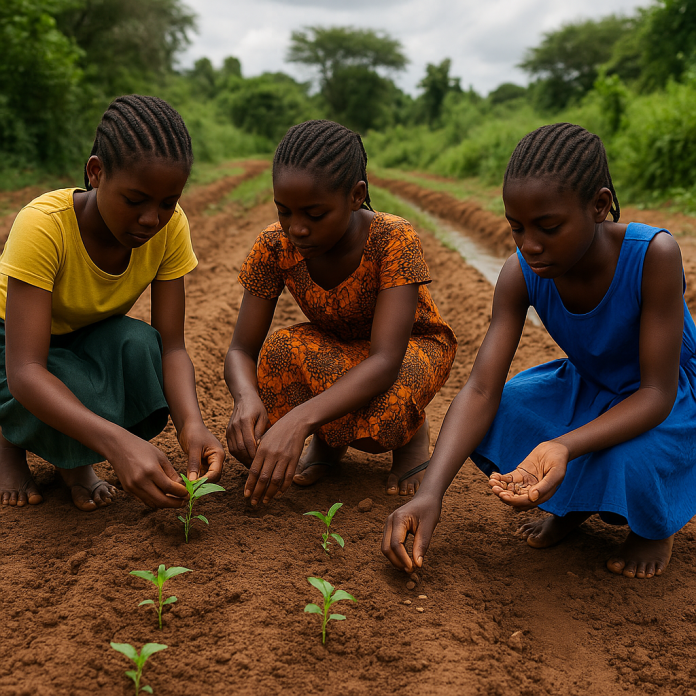Once riddled with water-filled craters from the blood diamond era, Sierra Leone’s Kono District is now witnessing an inspiring transformation. What was once war-torn terrain is being reclaimed — not by corporations or foreign aid, but by young Sierra Leoneans determined to build a future rooted in sustainability.
Leading this change are young people from diverse backgrounds: former miners, taxi drivers, high school graduates, and university-educated youth. “We all grew up believing diamonds were the only way to survive,” says Sahr Fallah, Chair of the Kono Youth Council. “But there is life beyond mining.”
Youth Driving Agricultural Renewal
According to the UN Food and Agriculture Organization (FAO), nearly half of the world’s 1.3 billion youth work within agrifood systems, yet often face systemic barriers — from land access to lack of financing and exclusion from policy decisions.
Despite these hurdles, youth-led projects in Kono are now yielding crops, producing honey, and even restoring pollinator populations. Betty Seray Sam, one of the young farmers, said that her role in agriculture has empowered her financially. “My family now turns to me during crises. I can support them — something I couldn’t do before.”
Skills, Sustainability and Solidarity
In Zimbabwe’s Chegutu district, youth-focused training initiatives such as the FAO-supported Bee Farmers Schools are giving rise to new green entrepreneurs. Young beekeeper Evelyn Mutuda is determined to grow her honey business with export-grade quality. “We’re planting Jacaranda trees to improve the honey and expand beyond local markets,” she says.
FAO natural resource expert Barnabas Mawire emphasizes that these training programs combine traditional knowledge with innovation. Apiaries serve as classrooms, allowing young people to develop practical skills and business acumen in one of the most sustainable sectors.
Youth Collective Power
Empowering youth isn’t just about skills — it’s about voice and agency. Too often, young people are included in policymaking in token ways, says FAO deputy director Lauren Phillips. “True inclusion means ensuring youth have a say in decisions that shape their futures.”
Today’s youth are forming networks both locally and globally, with digital tools like TikTok and Instagram amplifying new narratives in agriculture. These intergenerational bonds, built across platforms and borders, offer hope for more resilient food systems.
A Future Rooted in the Land
As the world navigates crises of climate, conflict, and inequality, young farmers and agripreneurs are emerging as key actors in recovery. At the High-Level Political Forum on Sustainable Development, UN experts stressed the importance of decent work and land rights to sustain this progress.
As Angeline Manhanzva, a young Zimbabwean beekeeper, dreams of owning her own honey processing business, her words echo the promise of this movement:
“One day, I will have my own land, my own hives, and produce my own honey. I’ll be the old woman who made it through the land.”




